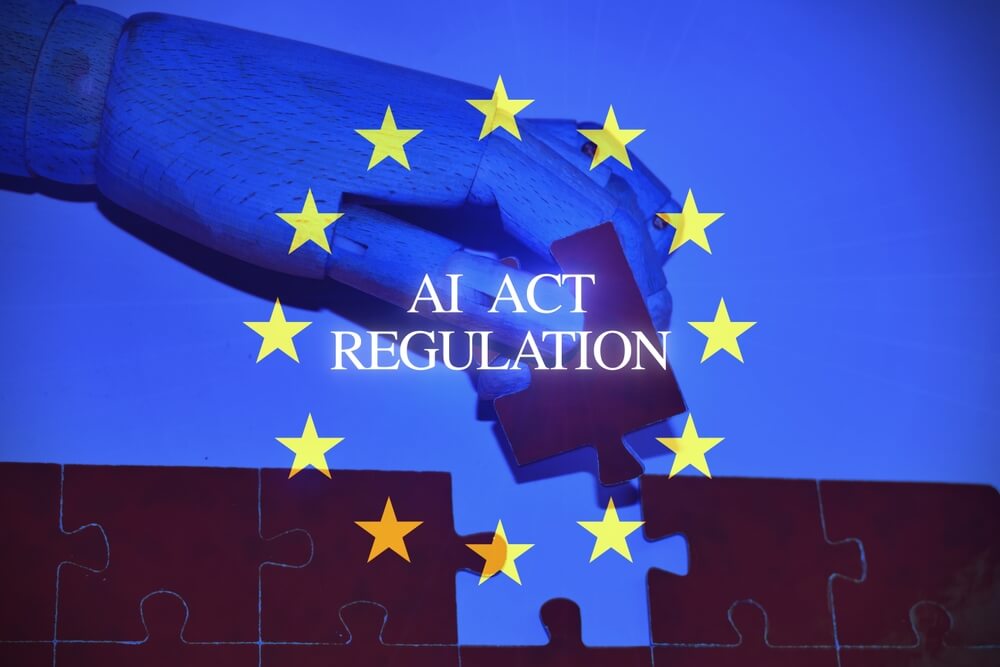The European Parliament has approved the groundbreaking Artificial Intelligence (AI) Act, marking a crucial step towards regulating AI technologies while fostering innovation and protecting fundamental rights.
The AI law, negotiated with member states in December 2023, received massive support from MEPs, with 523 votes in favor, 46 against and 49 abstentions.
Fundamentally, the AI Act aims to safeguard fundamental rights, democracy, the rule of law and environmental sustainability while propelling Europe to the forefront. AI Innovation.

Brando Benifei, co-rapporteur of the Internal Market Committee (S&D, Italy), underlined the historic nature of the legislation during the plenary debate, declaring“We finally have the world’s first binding law on artificial intelligence, to reduce risks, create opportunities, fight discrimination and provide transparency. Thanks to Parliament, unacceptable AI practices will be banned in Europe and the rights of workers and citizens will be protected. The AI Office will now be created to help businesses start complying with the rules before they come into force. We have ensured that human beings and European values are at the very center of AI development.”
AI Law: Protecting Rights and Banning Harmful Applications
The AI Act is designed to defend fundamental rights, democracy, the rule of law and environmental sustainability, particularly in the face of high-risk AI applications. At the same time, it aims to propel Europe to the forefront of AI innovation. By establishing clear obligations based on potential risks and impacts of AIthe regulation seeks to strike a balance between safety and innovation.
Apart from this, one of the key provisions of the Artificial intelligence The law is the ban on certain AI applications that pose a threat to the rights of citizens. This includes banning biometric categorization systems based on sensitive characteristics, as well as untargeted retrieval of facial images from the Internet or CCTV footage to create facial recognition databases.
Additionally, the law prohibits emotion recognition in workplaces and schools, social scoring, predictive policing based solely on profiling individuals, and AI that manipulates or exploits human behavior. vulnerabilities.
Stricter controls for law enforcement
The legislation imposes strict controls on the use of biometric identification (RBI) systems by law enforcement, allowing their deployment only in narrowly defined situations with strict safeguards.
For example, “real-time” RBI can only be used under specific conditions, such as limited duration and geographic scope, and with prior judicial or administrative authorization. High-risk AI systems, which have the potential to significantly harm health, security, fundamental rights and democracy, are subject to clear obligations, including in terms of risk assessment, transparency, accuracy and human oversight.
Although the use of biometric identification systems by law enforcement is restricted, certain exemptions are provided in narrowly defined situations, such as targeted searches for missing persons or the prevention of terrorist attacks. Strict safeguards, including judicial or administrative authorization, are required for real-time biometric identification systems.
High-risk AI systems, identified for their potential harm to health, safety, fundamental rights and democracy, are subject to clear obligations. These include risk assessment and reduction, transparency, accuracy and human oversight. Citizens have the right to file complaints about AI systems affecting their rights and to receive explanations about the decisions made by these systems.
General-purpose AI systems must meet transparency requirements, including compliance with European copyright law and the publication of detailed summaries of training data. More powerful AI models face additional requirements, such as model evaluations and incident reporting.
Supporting innovation and SMEs
The Artificial Intelligence Act also emphasizes transparency requirements for general purpose AI (GPAI) systems, ensuring compliance with European copyright law and detailed summaries of artificial intelligence data. training. In addition, innovation support measures, such as regulatory sandboxes and real-world testing, will be put in place at national level to facilitate the development of innovative AI solutions by SMEs and startups.
AI law: the way forward
While the regulation undergoes final vetting and awaits formal approval by the Council, it is expected to be adopted before the conclusion of the legislative session. Upon its publication in the Official Journal, the law will enter into force twenty days later, with full implementation expected within 24 to 36 months.
The adoption of the law on artificial intelligence constitutes a direct response to the citizen proposals of the Conference on the Future of Europe (COFE). It addresses crucial concerns such as strengthening competitiveness, ensuring reliability and promoting digital innovation while respecting fundamental rights and transparency.
Dragos Tudorache, co-rapporteur of the Civil Liberties Commission (Renew, Romania), remarked: “The EU has kept its promises. We have linked the concept of artificial intelligence to the fundamental values that underpin our societies. However, important work remains to be done beyond the AI law itself. AI forces us to reevaluate the social contract at the heart of our democracies, our educational paradigms, our labor markets and even the conduct of war. The AI Act is the cornerstone of a new technology-centric governance model. We must now focus on translating this legislation into action.
The approval of the Artificial Intelligence Law marks a pivotal moment in the EU’s efforts to regulate AI. She takes a nuanced path, striving to nurture innovation while preserving fundamental rights in an era defined by digital transformation.
Media Disclaimer: This report is based on internal and external research obtained through various means. The information provided is for reference purposes only and users take full responsibility for their reliance on it. The Cyber Express assumes no responsibility for the accuracy or consequences of the use of this information.

